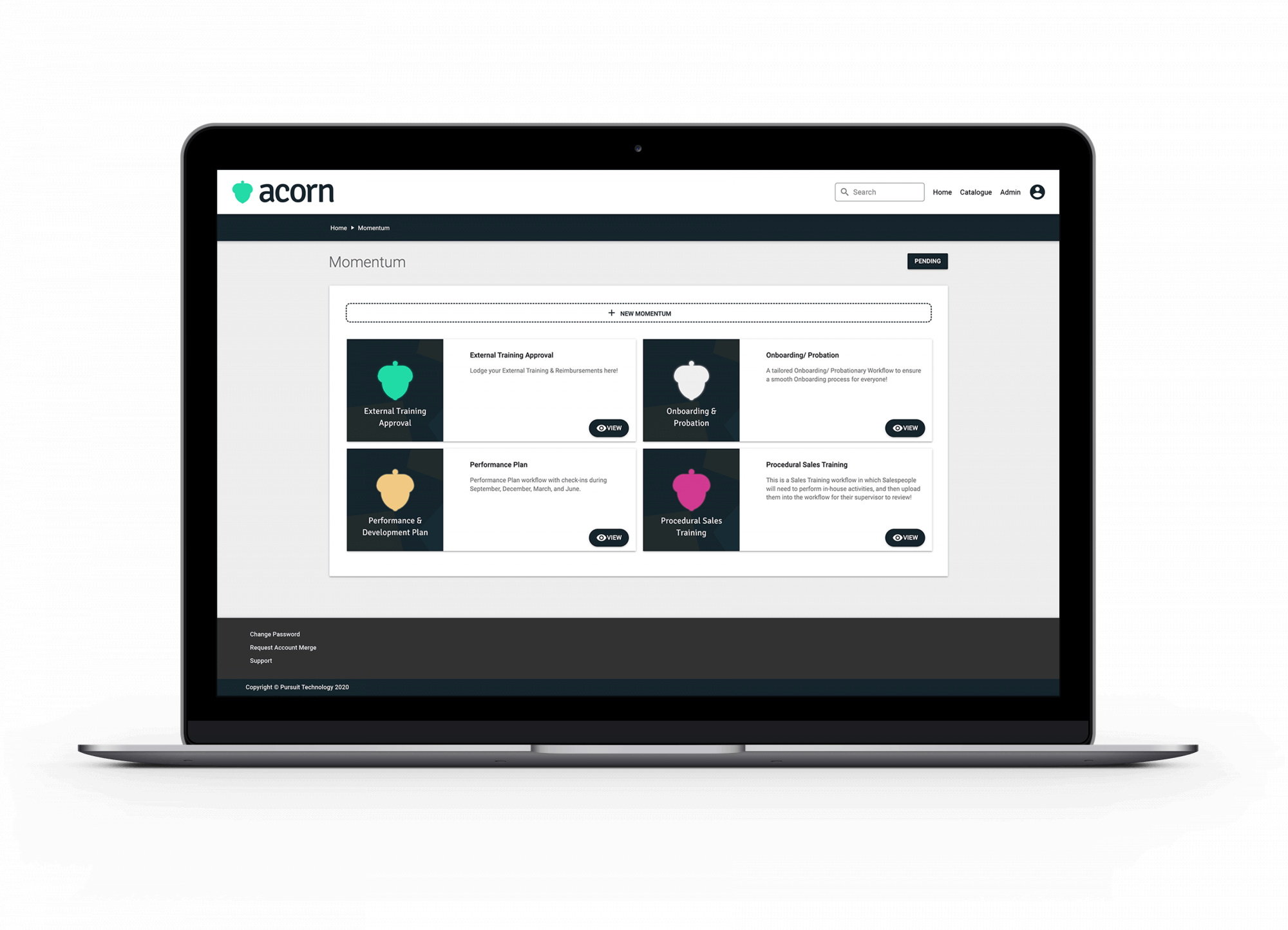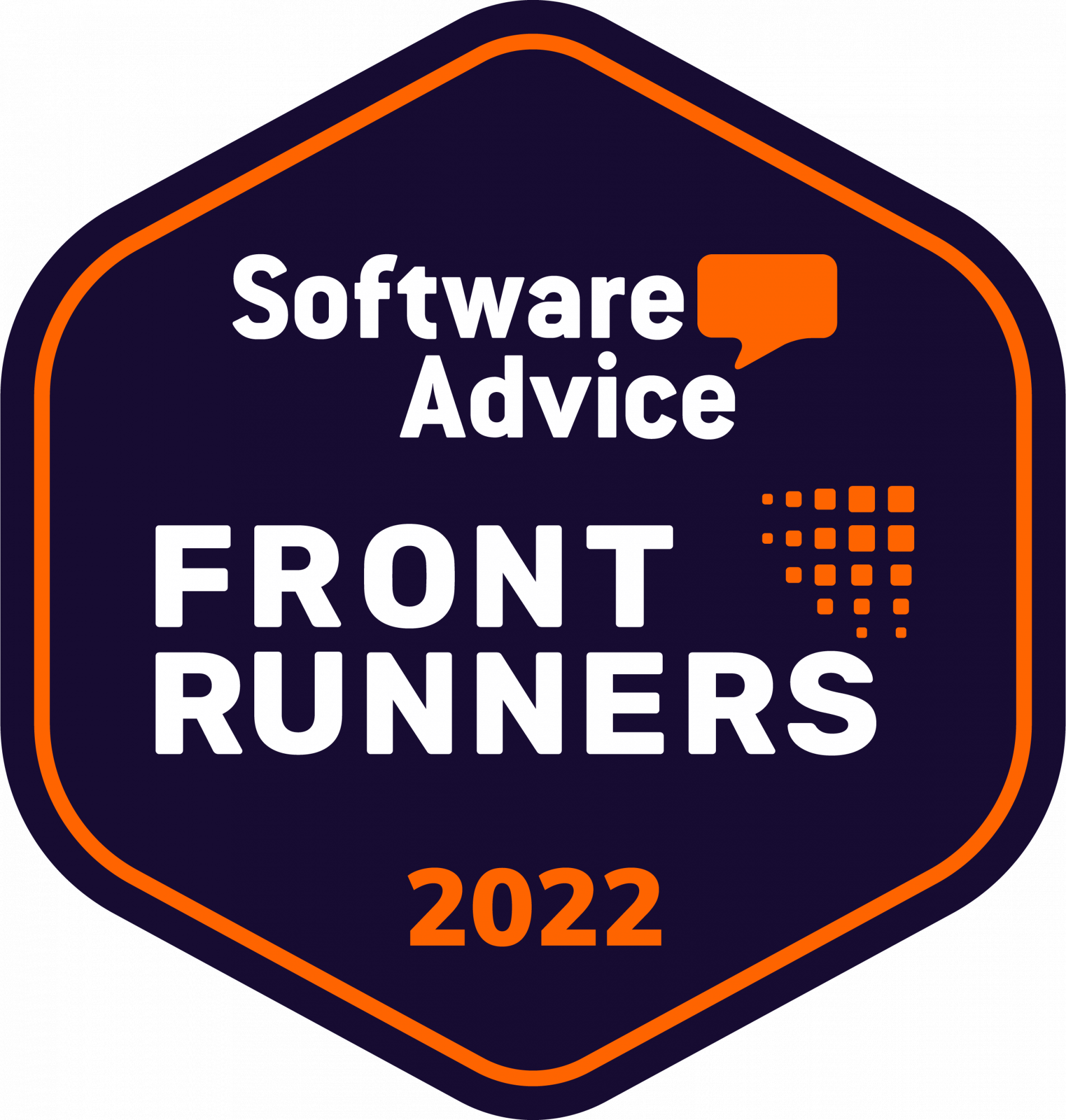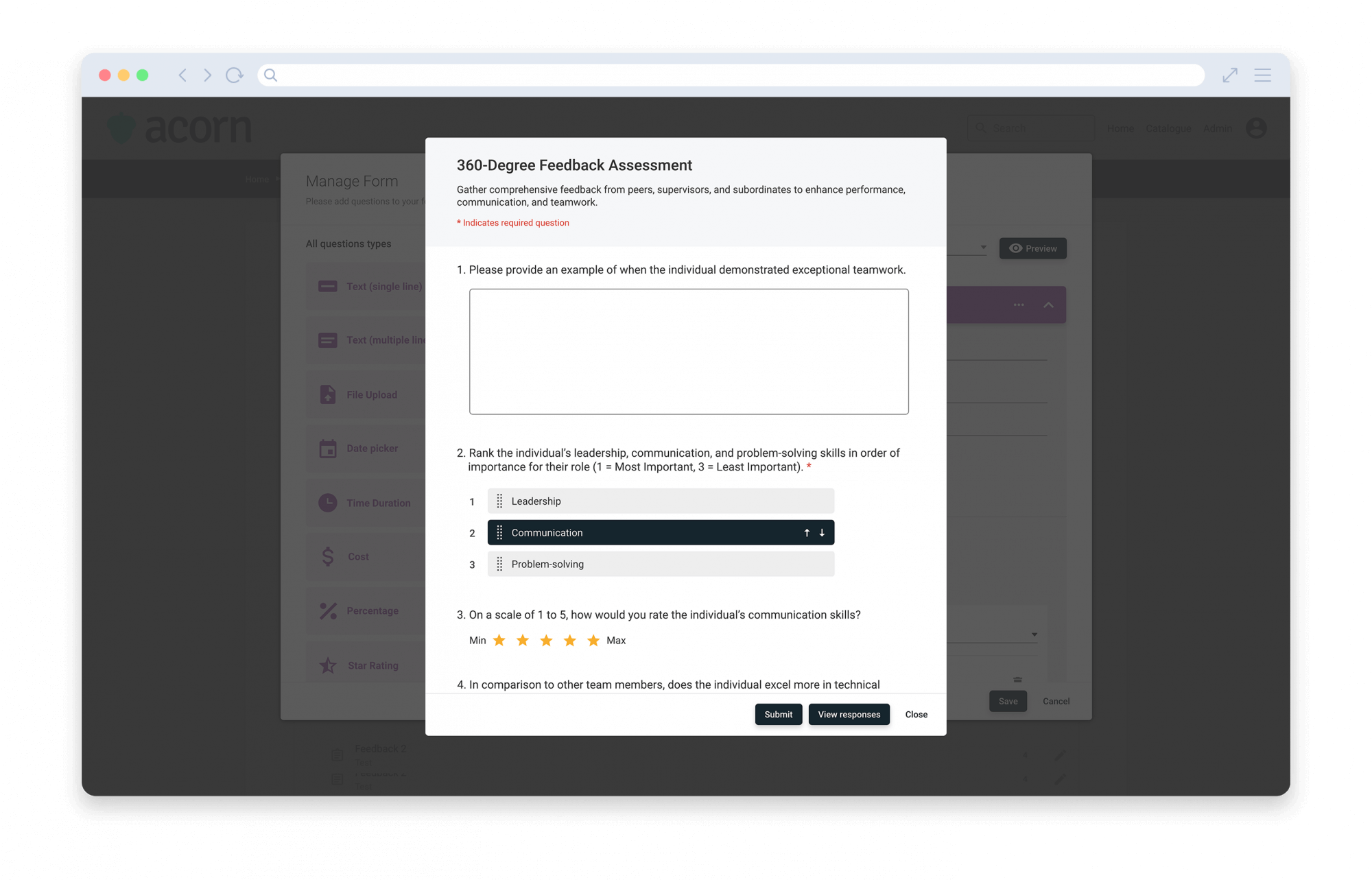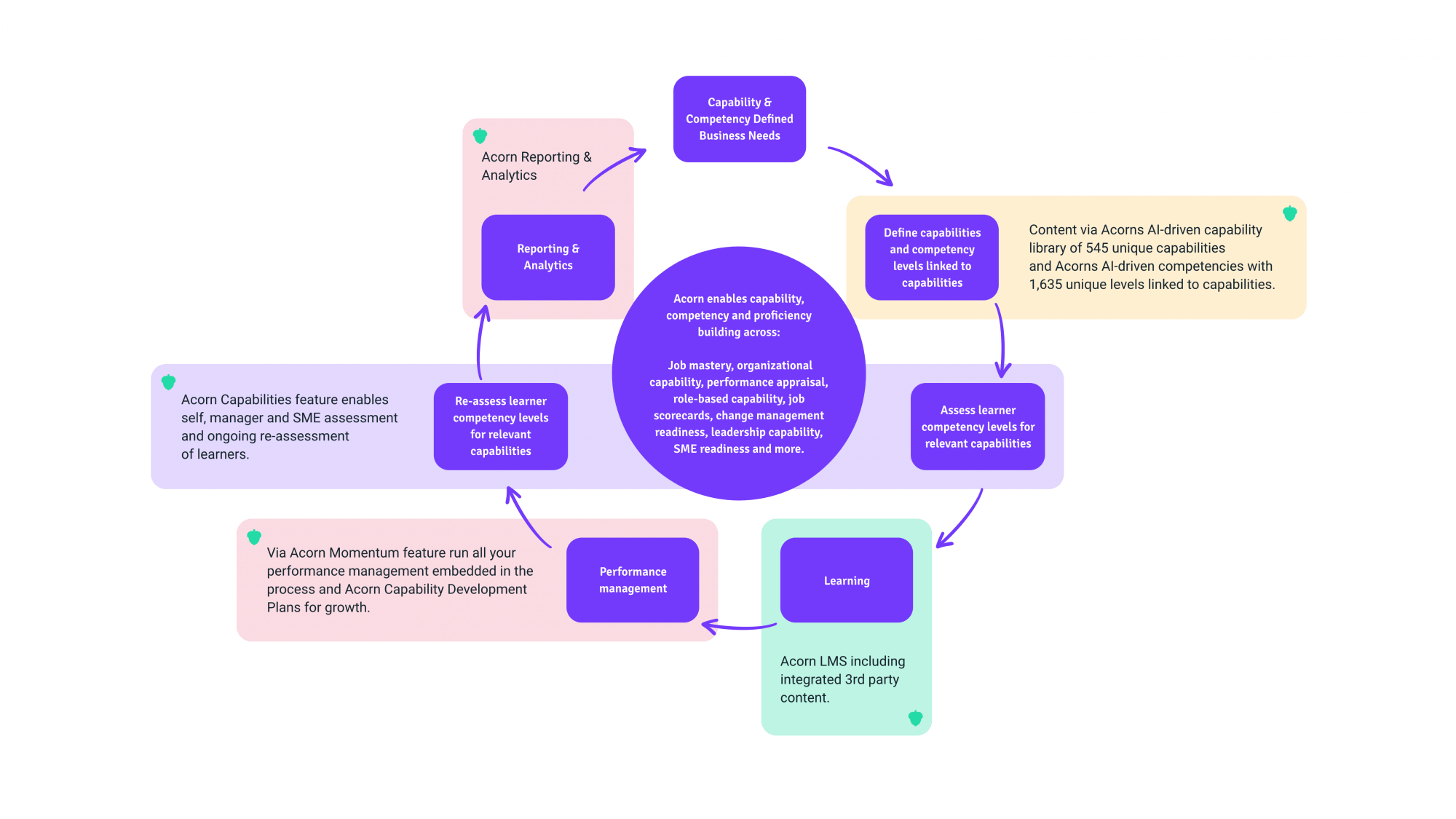Unlock improved employee performance, objective data for decision-making, and alignment with organizational goals.
Reduce complexity of your employee performance management
Acorn’s Momentum feature is an embedded and customizable performance management solution, so you can ensure consistency and fairness, all whilst balancing employee development and accountability.

Speak with one of our performance management specialists.
Trusted by hundreds of HR teams, used by 1 million+ users
We envision a world where organizations attain peak performance efficiently by empowering their people with the information they need (and nothing they don’t) to reach their full potential as impact players.






Make your purchase with confidence, knowing that we are endorsed by not only our large customer list, but also industry analysts who consistently recognize us as a top performer.
Take Momentum from Acorn for a spin.
Learn how Momentum drives results for HR teams
Goal Setting
and Tracking
Momentum enables organizations to establish and monitor team performance objectives. These objectives are typically in alignment with the company’s goals. Employees and managers can work together to create goals, ensuring clarity on expectations and providing a foundation for assessment. Momentum will keep track of progress towards these goals, offering real time visibility into performance.
Continuous Feedback
and Coaching
Momentum puts an emphasis on feedback and coaching instead of relying solely on yearly evaluations. It allows managers and employees to give and receive feedback consistently throughout the year, which helps make adjustments and enhancements. This includes features, like 360-degree feedback, peer reviews, and self-assessments all aimed at fostering a culture of learning and growth.
Performance Evaluation
and Appraisals
Momentum enables performance evaluations and appraisals. This includes evaluating employee performance based on established capabilities and competencies and identifying areas of strength as well as areas that need improvement, and then creating plans for personal growth. Implementing automated processes streamlines the tasks involved in these reviews, leading to increased efficiency and consistency.

Data collection & analysis, goal alignment, fairness and consistency, recognition, compliance, documentation, and more.

Review Momentum with confidence that it is a good use of your time.
The fastest path from people to performance.
The disconnect persists between corporate learning and actual performance, with legacy LMS and performance solutions unable to catalyze substantial growth.
To align learning and performance effectively in the current L&D environment, organizations need a PLMS like Acorn to help them meet their objectives.
This is achieved by defining, discovering, assessing, and improving core competencies. That’s the process that delivers.

Say goodbye to siloed performance management hell
